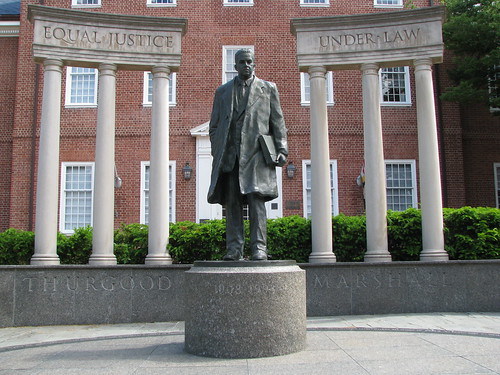
There are moments in the law when we need to put aside all of the theory and jargon and deal with the reality that courts exist to bring about just outcomes and not just implement indifferent procedures. An innocent man on death row would seem to be a clear case where procedures should yield and the law should bend over backwards to get the right result. Not so, says United States Supreme Court Justice Antonin Scalia.
Justice Scalia's dissent in Troy Davis's case, the case of a very likely innocent person on death row, epitomizes the kind of lawyerly posture that brings mistrust and contempt to the law:
“This court has never held that the Constitution forbids the execution of a convicted defendant who has had a full and fair trial but is later able to convince a habeas court that he is ‘actually’ innocent. Quite to the contrary, we have repeatedly left that question unresolved, while expressing considerable doubt that any claim based on alleged ‘actual innocence’ is constitutionally cognizable.”
To be clear, he is saying that it would not be unconstitutional to execute an innocent man so long as his wrongful conviction occurred at a trial conducted in accord with his narrowly defined constitutional rights. I suppose the fact that the execution of innocent people isn't explicitly barred in the constitution demands this outcome in his narrow originalist view. (Is this really what people want when they argue in favor of "strict constructionist" judges - people fetishistically devoted to a two hundred year old document written at earliest moments of a nation that only vaguely resembles the modern, multicultural state that we live in today?)
Aren't we just much better off with people who can bring some decency and common sense into the judicial role?
In another death penalty case, almost twenty years ago, Justice Thurgood Marshall was on the dissenting side where the majority had voted to uphold John Whitley's conviction and death sentence. Marshall called bullshit on the majority, as he would have, no doubt, on Scalia's dissent in Troy Davis:
"The Court's refusal to allow a federal habeas court to correct this error is yet another indication that the Court is less concerned with safeguarding constitutional rights than with speeding defendants, deserving or not, to the executioner."
I suspect that Marshall's superior wisdom had something to do with the fact that his primary engagement in the law - his real life experience - was not theoretical but instead was as an advocate for equal rights in the face of hostile and resistant judges and laws.
It will be nice to have some new judges on the bench with similar hard earned wisdom.
*** The photo is of the Thurgood Marshall monument in Annapolis, Maryland, prominently placed a few blocks from where I went to college. My friend Ian is fond of pointing out how there is a statue of Justice Roger Taney, who authored the infamous Dred Scott opinion holding that black people could not become citizens and had no protection under the Constitution, hidden on the other side of the capital building. There's the history we keep up front and the stuff we hide out back.

"The photo is of the Thurgood Marshall monument in Annapolis, Maryland, prominently placed a few blocks from where I went to college. My friend Ian is fond of pointing out how there is a statue of Justice Roger Taney, who authored the infamous Dred Scott opinion holding that black people could not become citizens and had no protection under the Constitution, hidden on the other side of the capital building. There's the history we keep up front and the stuff we hide out back."
ReplyDeleteReminds me of the Liberty Place obelisk here in New Orleans...and the memorials to Jefferson Davis and P.G.T. Beauregard...and all the other memorialized, non-P.C. parts of the past that we can't decide what to do with in many cases.